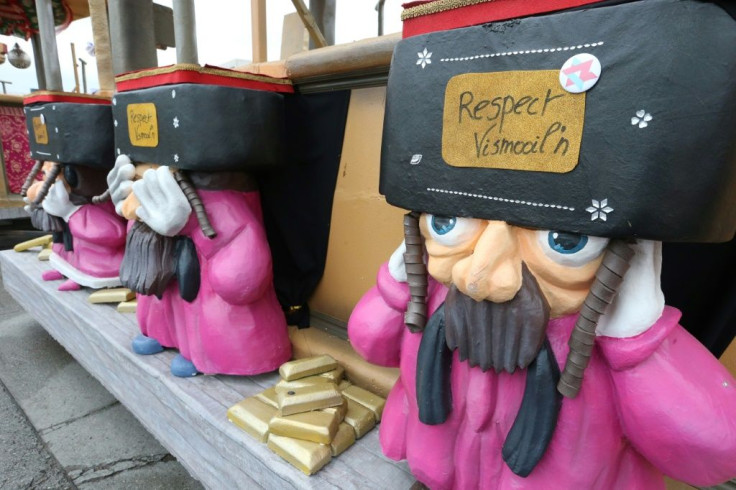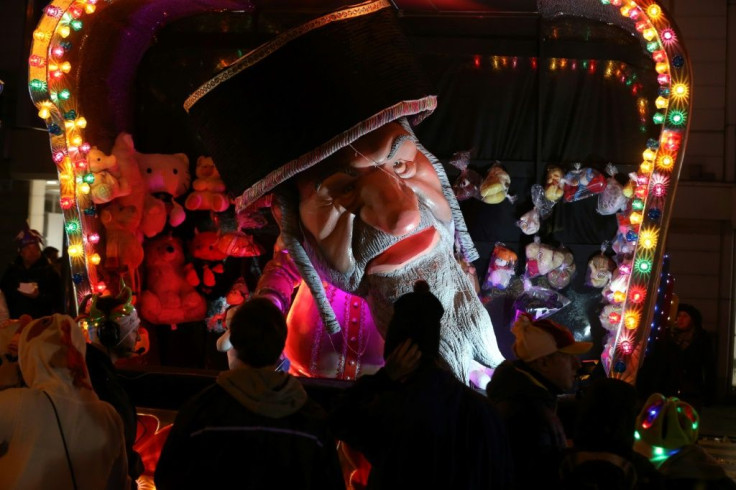EU Condemns Anti-Semitic Belgian Parade
The European Commission on Monday slammed a Belgian street parade for featuring anti-Semitic floats that it said were "incompatible" with EU values.
The Aalst carnival, a centuries-old event in central Belgium long known for mocking public figures, has in recent years been accused of parading insulting and derogatory depictions of Jews.
Last year it lost its place on a UNESCO heritage list because of anti-Semitism.
On Sunday, the parade included caricatures of Jews with hooked noses, obsessed with money and dressed up like insects.
"It should indeed be self-evident that such images as what we've seen should not parade European streets, 75 years after the Shoah," a Commission spokesman, Adalbert Jahnz, told journalists.

He said the European Union executive had received "a number of complaints" over the Aalst event, but that it was up to Belgian national authorities to take action.
As far as the European Commission was concerned, Jahnz said, "we stand firmly against all forms of anti-Semitism" and view the parade's floats as "incompatible with the values and principles in which the EU is founded".
Commission vice-president Margaritis Schinas said the Aalst carnival was a "shame".
"It needs to stop. No place for this in Europe," Schinas wrote on Twitter.
The carnival attracts tens of thousands of people over the three days leading to the Catholic holiday of Ash Wednesday and the start of Lent. It takes pride in its provocative, no-holds-barred approach.

Aalst mayor Christoph D'Haese defended the event, insisting it was not anti-Semitic.
He said it was important to take the "overall context" into account, comparing the parade to a "ritual of reversal" in which over three days "the poor become rich, the rich poor, men become women and women become men".
"Here we laugh at everything -- the royal family, Brexit, local and national politics and every religion -- Islam, Judaism and Catholicism," he said.
A float depicting puppets of hook-nosed orthodox Jews with rats sitting on money bags at the 2019 carnival caused uproar and led to UNESCO withdrawing it from its "intangible cultural heritage" list.
But carnival-goers interviewed by AFP on Sunday were unrepentant, with one who refused to be named saying the controversy was "completely exaggerated".
Another, doctor Guy Verhuslt, said it was a shame that "Jews don't have a sense of humour".
Others wore muzzles to protest against what they called "politically correct censorship", while UNESCO's decision attracted mockery, with floats casting the UN cultural agency as a snooping, vengeful "Big Brother".
Belgian Prime Minister Sophie Wilmes said the carnival "was causing damage to our values and the reputation of our country".
© Copyright AFP 2024. All rights reserved.











